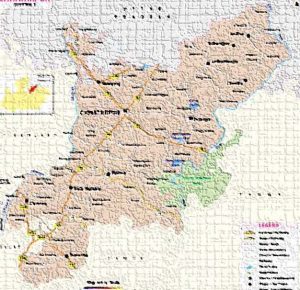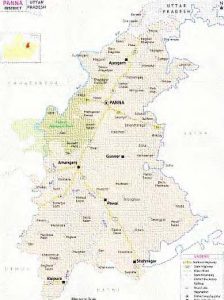Over the recent past, global digital companies are facing challenges from countries to keep and secure the data in respective country domain. Currently the data rests in their central servers maintained exclusively by them. This is amid fears that digital data security is an increasing issue and the state should have control over it. This is one issue of digital transformation. Another, yet poorly understood is information in the human development context or generally speaking ‘development’. Such information for which data is generated locally needs better dissemination strategies, here data security threat is secondary. The users of this information are the policymakers, scheme makers, consumers (beneficiaries), Block Development Officer (BDO), Statistician, elected representatives to make things better.
Information flows are not clearly available to the common man to understand and learn what lacks the delivery of services. The movement of information from Village-Gram Panchayat-Block-District and journey of programmes from top to down is often mismatched and many do not reach the targeted beneficiary. Some programmes are such that will require a dynamic geographic indicators of communities or families which have a migratory nature of work and a relaxed approach towards them i.e. if the family is not home or the house was found locked when the updation is in progress, how such a situation can be addressed that family is not struck off the rolls of scheme. The social structures in certain rural settings is still such that the downtrodden, poor and those dependent on others for livelihood avoid raising their voice for their rights and think that they will lose entitlement or benefits schemes & programmes – information can infuse confidence and enable a larger interface. Along with RTI Act, the use of social media has created a virtual sharing space where one can write about issue being faced and gain solidarity from many others much faster than before. But these again remain out of bounds for millions of people and such people have to follow a conventional approach of visiting a facility physically to testify for entitlement eligibility.
Another importance of information is its presentation so that it is understood easily. If we put certain information in its geographical and time context it presents direct relationship with the reader which can be a beneficiary, a government official, a student, a medical representative or an ANM. Preparing a base for the same is important. Another crucial aspect is time and data source – largely we depend on Census of India information which is available at the village level also but the time gap for a census information generation is decadal which is a long horizon (time period equivalent to 2 parliamentary elections when several policy decisions can take shape), NSSO data fills in certain gap between this periods. But the role of citizens, users, beneficiaries is also vital in the information flow between two administrative tiers.
The workbook is one such form where secondary data is converted to information and is spatially presented over maps so that a bird’s eye view is available across the region. This allows a better understanding. The confidence also stems from the 73rd Constitutional Amendment of 1992 where in 29 subjects within the function of Panchayats were listed. That information will be relevant to the respective Panchayats at their revenue boundaries level as well of all villages at the block level.
To make information dynamic RTI users, officials and all other stakeholders (listed in preceding text) can pool in. If people find the information useful which may have helped in improving delivery of services in their area, that will become the validation point. District block headquarters are the main points where citizens go for grievances and works, a mapping of issues there itself will provide focus.
Environics Trust has created workbooks for Panna and Chattarpur blocks in Madhya Pradesh using all available information for use by different stakeholders. For any suggestions, please email to info[at]environicsindia[dot]in
Click on the images below to read the respective workbook



Recent Comments